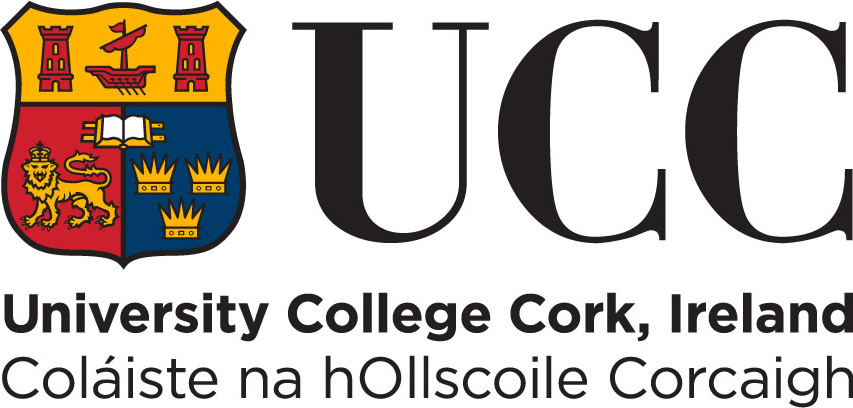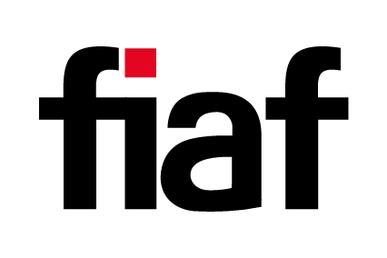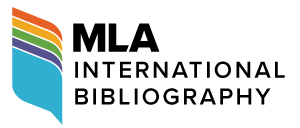Moving Beyond the (De)Colonial Container: The Work of Film Festivals[1]
Editorial
Estrella Sendra and Sheila Petty
This Alphaville issue brings together contributions that probe innovative approaches and methods of decolonising knowledge in screen cultures. Beginning with the question of what and whose knowledge is privileged, we seek to understand how film festivals, from inception to production, engage with knowledge paradigms to dismantle matrices of power and perform and promote artistic representations of sovereignty. We are particularly interested in work on film festivals that theorises and historicises (de)colonial frameworks for engaging with all aspects of film festivalisation.
(De)colonising knowledge is not a new concern, born exclusively of activities resulting from Truth and Reconciliation Commissions. In fact, as several scholars point out, some relatively little-known events have contributed to and/or “provoke debates around the world concerning decolonization” (Perego 11). The Algerian War of Independence, for example, “known in Algeria most commonly as the thwara (Arabic for ‘revolution’), came to emblemize the struggles of millions across the world against colonial rule and for greater dignity” (11). Various groups around the globe retain different perceptions of the term—applied locally— which we attempt to unpack in this special issue.
Decolonising knowledge works in relation with decolonising production, exhibition and research methodologies in film festivals because it begs the question of who is in control at each stage. In other words, who is in control of the curatorial gaze? Métis artist, curator and critical art writer, David Garneau offers an entry point and way forward to move beyond the “container” of Western structures and binarisms with his concept of “Indigenous sovereign display territory” (Garneau 35). Garneau describes this conception of how Indigenous art and cinema can be exhibited as “safe spaces [that] would encourage Indigenous people to make work that spoke not only to their own people, but also to visitors. It would probably value (local) meaning over Western notions of (universal) quality and blur the boundary between art and artifact” (36). Although Garneau suggests a way forward, he does caution that viewing artworks (screening films) in colonised spaces/dominant cultural space is “always in-formed by the worldviews of the managers of those spaces” (the containers) (35).“Indigenous sovereign display territory” is one proposed path forward; however, Garneau himself admits that, just as “colonialism is not a singular historical event but an ongoing legacy”, “there is no definitive story [and] there must be room, over time, for everything and everyone” (37, 36). Gathering many components together, such as dialogue, conversation, community, art and media practices and screenings could work to “function as a cultural lab” (36).
Hugo Ka Canham’s groundbreaking new book, Riotous Deathscapes, that focuses on life and death based on Indigenous and Black ways of knowing, ostensibly builds on Garneau’s work to break open the container. Canham advocates a framework for understanding decoloniality based on Indigenous ways of thinking across space and time that are “rooted in place”, but also “in relation” as a path forward “to breach colonial epistemes” (25, 22, 23). He argues that these terms or states/conditions should not be read as “mutually exclusive” but “could productively be seen as both potentially making and unmaking each other” (22). Mutual engagement and “movement and relations with multiple elsewheres” enriches rather than weakens identities and communities when the terms of reference are non-hierarchical and non-extractive (21).
Figure 1: Screening of Dem Dem! (Pape Bouname Lopy, Christophe Rolin and Marc Recchia, 2017, Senegal) at El Quizá, Guerrero (Mexico) on 8 June 2024. Photo: Estrella Sendra.
Work that seeks to decolonise often blurs “the line between producer and audience” and values conversation and “collaboration as well as collective authorship and input into a cultural production” (Wilson 91). The work of the film festivals we have engaged with in this special issue encourages audience participation and “co-curation” in an effort to challenge dominant Eurocentric paradigms and break free of the colonial container. From the activist itinerant subjective anthology of Pan-African cinema, co-curated by Paris-based friends and filmmakers Dyana Gaye and Valérie Osouf, to the co-curatorial initiative “Women Creators of the Future” between the UK-based Leeds International Film Festival and the Senegal-based Festival Films Femmes Afrique, the community-based and collaboratively co-curated Afrodescendant Audioviosiaul Arts Festival in Costa Chica (Mexico), offering a programme of films from Brazil, Mexico and Senegal and the Indigenous-focused representational sovereignty of the work of Janine Windolph, Trudy Stewart and two Indigenous film festivals in Saskatchewan, these various projects and voices offer insights into what decolonising curatorial practices may look like across different contexts in the world. This way of working and moving forward necessitates collaboration and conversation which is worked through in each of the contributions as they challenge histories of colonial film festival practices while foregrounding insights from decolonial and Indigenous studies, and archive and film festival studies to propose new pathways toward imaginable decolonisation.
It was in this spirit that in 2021 Estrella Sendra and Sheila Petty embarked on the research project entitled “Decolonizing Film Festival Research in a Post-Pandemic World” [NFRFR-2021-00161] that was funded through the Special Call on Innovative Approaches to Research in the Pandemic and Post-Pandemic Contexts, New Frontiers in Research Fund (NFRF), Government of Canada. The project proposed a first step in the process of rethinking film festival research by bringing together an international and interdisciplinary team of researchers in the field of film studies to design and trial an innovative research method that could contribute to decolonising film festival research.
The NFRF Special Call acknowledged the disruptive effect of the global pandemic in research and invited academics to constructively rethink and trial potential new approaches and directions in research methodologies since many had to quickly pivot and redesign whole research programmes. Many researchers would embrace the notion of “care” and hope as emphasised in The Care Manifesto (Chatzidakis et al.) and as described by Emily Daniels as the platform to “create different outcomes” (12). As radical educator Paulo Freire has written, hope is a human and ontological need, one that is not passive, but based on practice, on action (Pedagogy of Hope 2).
Film festivals were among the most impacted sectors by the COVID-19 pandemic, to the extent that some deemed 2020 as a “major moment in the history of film festivals” (de Valck and Damiens 299). Postponed editions, cancellations, the collapse of jobs, restrictive measures and the implementation of hybrid and reduced formats were all results of the pandemic (de Valck and Damiens). To survive, many film festivals were forced to innovate, moving online, applying social distancing and creatively working with local audiences and filmmakers (Petty, “Story”; Feal and Sendra; Dovey and Sendra). Whilst this was often discussed as a performance of resilience (Grassilli and Colta), scholars within the cultural and creative industries soon suggested that “rather than a call for resilience, policy needs to connect with a rethinking of the future sustainable development of the sector” (Comunian and England 113). For example, a major volume on rethinking film festivals by researchers from the Film Festival Research Network (de Valck and Damiens) addresses the topic of the multiplicity of understanding decolonisation depending on context and the fact that “there is no one-size-fits-all model” (Dovey and Sendra 276). The volume invited a reorientation of film festivals, informed by the voice of festival organisers and filmmakers largely with a focus on curation of African cinema and by the problematic hierarchical dimension of film festivals exposed by the provocative Film Festival Film (Perivi Katjavivi and Mpumelelo Mcata, 2019, South Africa).
This concern with rethinking film festivals from a research and industry perspective is not new or specific to festivals (Morreira et al. 1). Film scholars have been advocating for the de-Westernisation of film studies just as we have attempted to be open about our racialised positionality, acknowledging this and being self-reflexive about the impact of this in our research (Petty, “African Frameworks”; Sendra, “Video Essays”; Dovey and Sendra). As academics with a shared interest in African cinema and film festivals, we were keen to work together, and some of us had already collaborated in digital time-space in the online conferences “Contours of Film Festivals Research and Methodologies” (2020), whose focus was precisely on research methods, as applied to film festival research, and “Transnational Screen Media Practices: Safeguarding Cultural Heritage” (2021) which brought together scholars, media artists, cultural practitioners, industry funders and policy makers from different areas of the world grappling with common issues around the safeguarding, presentation and documentation of living cultural heritage in the domain of screen media.
Informed by our experience as both researchers and educators in Arts and Humanities, where we interact with people and their artistic expressions, we were interested in stressing the crucial role that our positionalities and subjectivities play in knowledge production. Beyond the ethics approval often required in higher education institutions, there did not seem to be enough guidelines (outside of Indigenous research practices) on how to integrate positionality and self-reflexivity in research. On occasion, some students even struggle to understand the notion of positionality or are worried about being too subjective through the inclusion of the “I” in their writing. Similarly, whilst they are often eager to interview artists and creative workers, there is often fear about not knowing how to prepare for such interviews or to conduct ethnographic fieldwork. There is also uncertainty about how to approach this in a decolonising way, particularly since we all work from institutions that remain deeply rooted and structured in colonialism. As Indigenous scholar Linda Tuhiwai Smith suggests, engaging with the tensions and challenges—and not just opportunities of—decolonial practices entails the need to “locat[e] ourselves and highlight that place from where we are writing” (xiv).
Decolonisation as a term has become a buzzword, with uncertainty about its broad meanings and its forms of practice and implementation (Morreira et al.). When applied to research, it becomes almost contradictory, since “the term ‘research’ is inextricably linked to European imperialism and colonialism” (Smith 1). Aware of the challenges and complexities of decolonising research, we were equally aware of the urgency and need for decolonising research methods (Smith xii). We felt interpellated by Linda Tuhiwai Smith’s invitation “to stimulate the work that is possible for research when we as researchers decolonize our minds, our discourses, our understandings, our practices and our institutions” (xiii). We were interested in critically observing our own research practice and share reflections and practices that may contribute to a process that is also a collective imperative and responsibility. We were inspired by South African decolonial thinker Sabelo J. Ndlovu-Gatsheni, who calls for pluriversalisation as a site for liberation from the “European game” (5). We were also influenced by Senegalese philosopher Souleymane Bachir Diagne, whose proposal for decolonisation involves a
rehabilitation of ancient and non-Western forms of economic and social organization, as well as the quest for new forms of solidarity between the various Souths and, on the other hand, a fundamental break with epistemological and cultural Eurocentrism and its claim to be the sole embodiment of scientificity and universality. (Mangeon, in Diagne and Amselle xii; emphasis added).
We also embraced the immense contribution Latin American thinkers have given to the theory and praxis of “decoloniality” in the past thirty years, namely Anibal Quijano, Walter Mignolo and Nelson Maldonado-Torres. These authors help us approach, question and reflect on the possible dimension of decolonial practice in a context such as ours: research funded by Canada, led by one North American and one European researcher, mainly developed in English, and subjected to Western institutional practice, policies and ethics of research. Building on Dovey and Sendra’s call “to everyone who works at or who has an investment in film festivals, to engage in such anti-racist activism”, the aim of this method-focused project was to thus also offer some tools that could help us find practical ways of decolonising research (275). As Shannon Morreira and others observe, “while debates on decoloniality and decolonisation have proliferated at a theoretical level, work on operationalising them within the academy is just beginning; and that there is a gap between high-level decolonial theory and its practices of implementation” (2).
From the very beginning of our research design, we attributed collaboration a leading role, to think and practice together, that is, to rehearse and reflect on the proposed research method through a pilot implementation of it in several festivals. We formed a transnational team, with researchers and festival partners based in Brazil, Canada, Denmark, Senegal and the United Kingdom. All research collaborators were previously involved with film or/and film festival research or practice, in and most cases, with a combination of practice and theory. Among the team, there are several members who had conducted or still conduct work as curators, managers, directors, jury members, among other role, which we considered would provide a broader set of perspectives for the project. The very existence of this research project would not make much sense without the involvement and collaboration of film festival practitioners. These collaborators have actively participated in the access and communication with festival partners based in their local areas or/and with whom they had some previous contact.
The emphasis on self-reflexivity in the project was more concerned with triggering further questions to consider in the research process rather than finding fixed and final answers to a specific research question. It was also intended to make us pause and think about our interrelations with all people concerned in the research process. This would be achieved through a first part of the Decolonial Test, one formed of a series of questions to consider in preparation for our contact with festival partners and fieldwork. The first part would then be followed by a second part, a sort of interview guide with a festival representative selected by the approached festival itself. Then, it would be followed by fieldwork in the festival and a focus group with some participants. The point of this test was not just to collect data about the festival but also about us, the researchers. We would have to question the extent to which those were valid questions and the way in which they approached or disconnected us from our research participants in the process of finding out about their decolonising practices and understandings.
When selecting festivals for our research sample we found it pertinent to focus on African film festivals, based both in and beyond the African continent. This would allow, on the one hand, to contest the historic “narrative of exclusion” of Africa in very hierarchical film festival networks (Dovey 50). It would also contribute to the pluriversalisation, to borrow Ndlovu-Gatsheni’s term (59), and de-Westernisation of film festival research. By positioning Africa as point of origin, we embraced the philosophy of cultural and representational sovereignty by which a culture’s own particular logic controls and organises the process and product of artistic creation.
As Dovey notes, many “arts festivals with a strong film presence” took root “during decolonization” (1). These brought an innovative audience-based curatorial approach, with “African audiences fully in mind” (Dovey 97). Where is this debate after sixty years? How is it performed through the curation and management of international film festivals and African film festivals all over the world? As international institutions rethink their cultural management and policies, trying to provide approaches to cater to diverse audiences, we suggest observing the audience-based curatorial approach historically implemented in the African continent, where curation is done, as identified by Dovey with “African audiences fully in mind” (97).
Similarly, in light of the identified need to find new forms of solidarity and ethics of care, we proposed looking at the well-established “reciprocity practices” between festival managers, organizers, curators and filmmakers, based on mutual trust and collaboration (Peirano 64; Vallejo 253–54) in African film festivals internationally. We also looked to Hélène Neveu Kringelbach’s crucial remark questioning the ethics of research in Africa by outsiders, where there is a sense of distrust among local people when a scholar from outside Africa behaves extractively, traveling to observe, learn from people, draw conclusions and then return to their county “to be called an ‘expert’” (24). The Afrocentrism of our research sample thus offered an opportunity to think deeply about the power and colonial relations that may be. The research sample included, in chronological order in the research process, the Festival international du film documentaire, also known as St-Louis’ DOCS in Saint-Louis, Senegal (10–14 May 2022 and 2–7 May 2023); the Mostra de Cinemas Africanos in Brazil (São Paolo, 6–13 July 2022; São Paolo, 5–13 September 2023; and Salvador, 13–18 September 2023); the African Movie Festival in Manitoba, Canada (23–25 September 2022); Film Africa in London, United Kingdom (28 October–6 November 2022); the “Women Creators of the Future” programme done in partnership between the Leeds International Film Festival (LIFF) and Festival Films Femmes Afrique in Senegal (FFFA), which took place in Leeds, United Kingdom (9–16 November 2022); and Vues d’Afrique in Montréal, Canada (20–30 April 2023). These are all festivals with which at least one researcher involved in the project had a previous collaboration or relationship. Beyond the observed practices that could be of interest to gaining insights on decolonising understandings and practices at film festivals, the previous relationship also facilitated access. This became important due to the short length of the funded project, but, at the same time, it was also insightful of the need to consider our previous relationship with festivals, if any, in the research design. The two-part Decolonial Test included 1) a Researchers Test that provided questions for the researcher to think about when analysing a film festival and allowed self-reflection from the very beginning of the research process. Areas checked through these questions included positionality, access, multilingualism, dialogue, innovation, engagement in reciprocity practices, diversity and inclusivity of knowledge production and dissemination; 2) a Festivals Test through which various pilot implementations across different regions in which the team members were located would determine if the analysis of the case study is able to take into account issues around justice, equity, diversity and inclusion in the festival management and curatorial process.
Figure 2: Molly Cowderoy and Amayel Ndiaye introducing the co-curated strand “Women Creators
of the Future” at the Leeds International Film Festival 2022. Photo: Estrella Sendra.
Rachel Johnson’s contribution to this special issue of Alphaville, “Decolonising Through Co-curation? Women Creators of the Future, Festival Films Femmes Afrique and Leeds International Film Festival”, is one of the many fruits of the above-described research project. Laura Feal’s “Documenting the Territory in Saint-Louis, Senegal: An Interview with Mamadou Sellou Diallo” and Estrella Sendra’s “Tigritudes: A Subjective Anthology of African Cinema to Decolonize the Gaze. An Interview with Dyana Gaye” are offshoots of the project, although Mamadou Sellou Diallo was a key participant at StLouis’ DOCS, a key case study based in the African continent, where we conducted research in 2022 and 2023 for the purpose of the project. The final two contributions from Claudia Lora and others and Janine Windolph and Sheila Petty are meant to demonstrate how the project’s parameters can be opened up to include other geographical areas of the world, in this case the “Americas”: “‘Stories Are in our Bones!’: From mispon to Ācimowin” and “The Muestra de Cine Afrodescendencias in Costa Chica: Intersections of Afrodescendant and Decoloniality in Curatorial Practice”.
Acknowledgement and Ethics Approval
We acknowledge the support of the Government of Canada’s New Frontiers in Research Fund (NFRF) [NFRFR-2021-00161 for the project “Decolonizing Film Festival Research in a Post-Pandemic World”. This project was granted University of Regina Research Ethics Board Certificate of Approval REB# 2022-057 (Nominated Principal Investigator Sheila Petty).
Note
[1] We borrow the term “colonial container” from David Garneau (35).
References
1. Canham, Hugo Ka. Riotous Deathscapes. Duke UP, 2023.
2. Chatzidakis, Andreas, et al. The Care Manifesto: The Politics of Interdependence. Verso, 2020.
3. Comunian, Roberta, and Lauren England. “Creative and Cultural Work without Filters: Covid-19 and Exposed Precarity in the Creative Economy.” Cultural Trends, vol. 29, no. 2, pp. 112–28, https://doi.org/10.1080/09548963.2020.1770577.4. “Contours of Film Festivals Research and Methodologies.” Online Conference, University of Kansas and Birkbeck University of London, 11–12 Sept. 2020, sites.google.com/view/contoursconference2000/home.
5. Daniels, Emily A. Fighting, Loving, Teaching: An Exploration of Hope, Armed Love and Critical Urban Pedagogies. Vol. 4. Birkhäuser Boston, 2013. Print.
6. de Valck, Marijke, and Antoine Damiens. Rethinking Film Festivals in the Pandemic Era and After. 1st ed., Springer Nature, 2023, https://doi.org/10.1007/978-3-031-14171-3.
7. de Valck, Marijke, and Antoine Damiens. “Film Festivals and the First Wave of COVID-19: Challenges, Opportunities, and Reflections on Festivals’ Relations to Crises.” NECSUS: European Journal of Media Studies,#Method, Vol. 9, no. 2, 2020, pp. 299–302. https://doi.org/10.25969/mediarep/15321.
8. Diagne, Souleymane Bachir, and Jean-Loup Amselle. In Search of Africa(s): Universalism and Decolonial Thought. Polity Press, 2020.
9. Dovey, Lindiwe, and Estrella Sendra. “Toward Decolonized Film Festival Worlds.” Rethinking Film Festivals in the Pandemic Era and After, edited by Marijke de Valck and Antoine Damiens, Palgrave Macmillan, 2023, pp. 269–90, https://doi.org/10.1007/978-3-031-14171-3_14.
10. Feal, Laura, and Estrella Sendra. “Nearby the Festival International du Film Documentaire de Saint-Louis: Rethinking Proximity in Times of COVID-19.” NECSUS: European Journal of Media Studies, vol. 10, no.1, 2021, pp. 261–73, https://doi.org/10.25969/mediarep/16257.11. Freire, Paulo. Pedagogy of the Oppressed. 1970. Translated by Myra Bergman Ramos, Bloomsbury Academic, 2018.
12. Freire, Paulo. Pedagogy of Hope: Reliving Pedagogy of the Oppressed. 1992. Translated by Robert Barr, Bloomsbury Publishing Plc., 2014.
13. Garneau, David. “Imaginary Spaces of Conciliation and Reconciliation: Art, Curation, and Healing.” Arts of Engagement: Taking Aesthetic Action in and Beyond Canada’s Truth and Reconciliation Commission, edited by Dylan Robinson and Keavy Martin, Wilfrid Laurier UP, 2016, pp. 21–42.
14. Grassilli, Mariaguilia, and Alexandra-Maria Colta. “The Human Rights Film Network: Festival Resilience in the Time of Covid-19.” NECSUS: European Journal of Media Studies, vol. 10, no. 1, 2021, pp. 275–82, https://doi.org/10.25969/mediarep/16258.
15. Katjavivi, Perivi, and Mpumelelo Mcata, directors. Film Festival Film. End Street Africa, Old Location Films, 2019.
16. Morreira, Shannon, et al. “Confronting the Complexities of Decolonising Curricula and Pedagogy in Higher Education.” Third World Thematics: A TWQ Journal, vol. 5, no. 1–2, 2020, pp. 1–18, https://doi.org/10.1080/23802014.2020.1798278.
17. Ndlovu-Gatsheni, Sabelo J. Decolonization, Development and Knowledge in Africa: Turning Over a New Leaf. Routledge, 2020.
18. Neveu Kringelbach, Hélène. Dance Circles: Movements, Morality and Self-fashioning in Urban Senegal. Berghahn Books, 2013.
19. Peirano, María Paz. “Connecting and Sharing Experiences: Chilean Documentary Film Professionals at the Film Festival Circuit.” Documentary Film Festivals,Vol. 2, edited by Aida Vallejo and Ezra Winton, Palgrave Macmillan, 2020, 55–72, https://doi.org/10.1007/978-3-030-17324-1_4.
20. Perego, Elizabeth M. Humor and Power in Algeria, 1920 to 2021. Indiana UP, 2023.
21. Petty, Sheila. “Story Within a Story: Vues d’Afrique in the Time of COVID-19.” NECSUS: European Journal of Media Studies, vol. 20, no. 2, 2020, pp. 349–56, https://doi.org/10.25969/mediarep/15328.
22. Petty, Sheila. “African Frameworks of Analysis for African Film Studies.” De-Westernizing Film Studies, edited by Will Higbee and Saer Maty Ba, Routledge, 2012, pp. 67–79.
23. Sendra, Estrella. “Video Essays: Curating and Transforming Film Education through Artistic Research.” International Journal of Film and Media Arts, vol. 5, no. 2, 2020, pp. 65–81, https://doi.org/10.24140/ijfma.v5.n2.04.
24. Smith, Linda Tuhiwai. Decolonizing Methodologies: Research and Indigenous Peoples. 3rd edition,Zed Books, 2021.
25. “Transnational Screen Media Practices: Safeguarding Cultural Heritage.” Online conference, Humanities Research Institute, University of Regina, 24–25 June 2021.
26. Vallejo, Aida. “Ethnographies of Film Festivals: Reflections on Methodology.” Film Festivals and Anthropology, edited by Aida Vallejo and María Paz Peirano, Cambridge Scholars Publishing, 2017, pp. 251–60.
27. Wilson, Pamela. “Indigenous Documentary Media.” Contemporary Documentary, edited by Daniel Marcus and Selmin Kara, Routledge, 2016, pp. 87–104.
Suggested Citation
Sendra, Estrella, and Sheila Petty. “Moving Beyond the (De)Colonial Container: The Work of Film Festivals.” Alphaville: Journal of Film and Screen Media, no. 28, 2024, pp. 1–10. DOI: https://doi.org/10.33178/alpha.28.00
Estrella Sendra is Lecturer in Culture, Media and Creative Industries Education (Festivals and Events) at King’s College London. Her main research interests are film and creative industries in Senegal, with a focus on festivals. She was the co-principal investigator of “Decolonizing Film Festival Research in a Post-Pandemic World”, funded by the Government of Canada’s New Frontiers in Research Fund (NFRFR-2021-00161, 2022-24). She is an advisory board member of the ERC-funded research project “African Screen Worlds: Decolonising Film and Screen Studies”, led by Prof Lindiwe Dovey. She was awarded the King’s Research Impact Awards (International Collaboration) 2024 for her collaborations with festivals and film programmes curating African cinemas.
Sheila Petty is professor emerita of film studies at the University of Regina. A Fellow of the Royal Society of Canada, she has written on issues of cultural representation, identity and nation in African and African diasporic screen media, and has curated film and media exhibitions for art galleries across Canada. She is author of Contact Zones: Memory, Origin and Discourses in Black Diasporic Cinema, and co-editor of the Directory of World Cinema: Africa. Her latest book, Habiba Djahnine: Memory Bearer, is forthcoming in April 2025 (Edinburgh UP). She has recently edited a volume on film festivals for Palgrave Macmillan.











